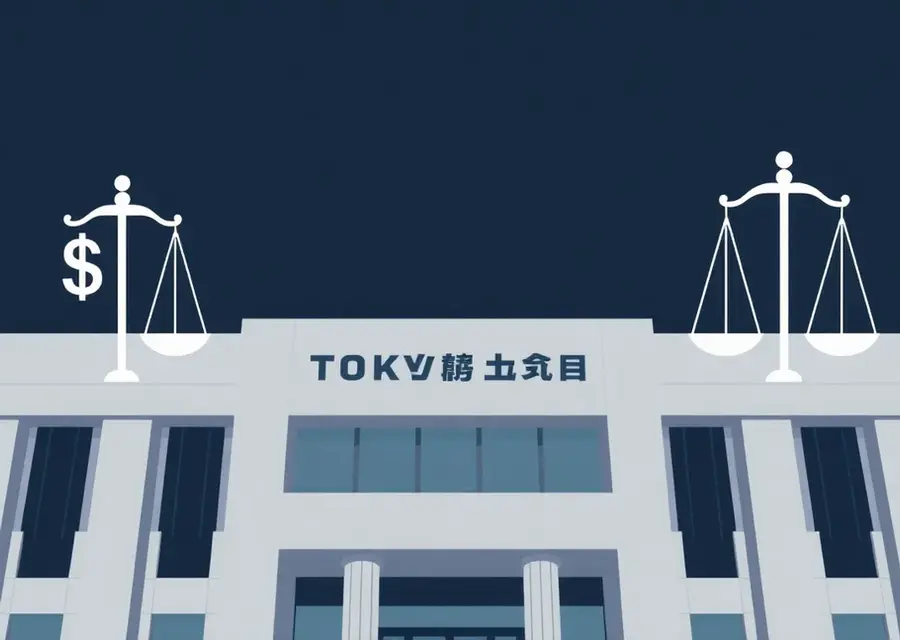Protecting Investors: Tokyo Stock Exchange's Push for Fairer Management Buyouts
- THE MAG POST

- Sep 7
- 4 min read

Navigating the complexities of management buyouts (MBOs) on the Tokyo Stock Exchange has become a focal point for regulatory attention, especially concerning the protection of minority shareholders. Just weeks after implementing stricter disclosure requirements for such transactions, the exchange finds itself under continued pressure to ensure these deals are equitable. Companies like Pacific Industrial and Soft99, which have announced plans to delist via MBOs since the new rules took effect, exemplify the ongoing trend and the critical need for transparency. The bourse's directive mandates comprehensive explanations regarding MBO procedures and price fairness, aiming to prevent investors from incurring losses due to undervalued delistings, though some deals still raise concerns about their fairness to all stakeholders.
Navigating Management Buyouts on the Tokyo Stock Exchange
The landscape of corporate finance is ever-evolving, and management buyouts (MBOs) represent a significant facet of this dynamic. These transactions, where a company's existing management team acquires a controlling stake, can offer strategic advantages but also present complex challenges, particularly concerning investor protection. The Tokyo Stock Exchange (TSE) has recently amplified its scrutiny, urging for enhanced transparency and fairness in these deals, especially when they involve delisting from public markets. This heightened focus stems from a desire to safeguard minority shareholders from potential exploitation and ensure that buyouts occur at equitable valuations.
The Evolving Regulatory Framework for MBOs
In response to ongoing concerns, the TSE has implemented new disclosure requirements for management buyouts and acquisitions by controlling shareholders. Effective from July 22, these regulations mandate that companies pursuing delisting through MBOs must provide detailed explanations regarding the transaction process and the fairness of the offered price. This initiative aims to equip investors with sufficient information to assess the merits of such deals and to prevent them from suffering losses due to undervaluation.
Recent Delisting Trends
Since the introduction of these enhanced disclosure rules, several notable companies have announced their intention to go private via management buyouts. Among them are Pacific Industrial, a key supplier to automotive giant Toyota Motor, and Soft99, a well-regarded maker of car-care products. These high-profile cases underscore the continued prevalence of MBOs and the critical need for robust investor protection mechanisms.
Ensuring Price Fairness and Procedural Integrity
The core objective behind the TSE's revised guidelines is to ensure that MBOs are conducted with integrity and fairness. The exchange requires companies to justify the valuation methods used and to demonstrate that the offered price adequately reflects the company's intrinsic value. This includes providing comprehensive documentation on how the buyout price was determined and outlining the steps taken to ensure a transparent and equitable process for all shareholders, particularly those holding minority stakes.
Potential Pitfalls and Investor Safeguards
Despite regulatory efforts, concerns linger that some management buyouts may still not adequately serve the interests of minority shareholders. A common critique is that management, being privy to inside information and often incentivized to acquire the company at a lower price, may present offers that undervalue the business. This creates a potential conflict of interest, where the management's personal gain could come at the expense of external investors.
The Role of Independent Committees and Valuations
To mitigate these risks, regulatory bodies and exchanges often encourage the establishment of independent committees comprised of directors not involved in the management buyout. These committees are tasked with evaluating the fairness of the proposed terms and negotiating on behalf of minority shareholders. Engaging independent financial advisors to conduct thorough fairness opinions is also a crucial step in ensuring that the buyout price is justifiable and aligned with market realities.
Disclosure Beyond Price
Beyond just the price, the TSE's push for more disclosure extends to the procedural aspects of MBOs. Companies are expected to detail the timeline of negotiations, the rationale behind the chosen deal structure, and any potential conflicts of interest among the parties involved. Transparency in these areas allows minority shareholders to better understand the context of the offer and to identify any potential red flags that might indicate an unfair deal.
The Path Forward: Balancing Corporate Flexibility and Shareholder Rights
The Tokyo Stock Exchange's enhanced disclosure requirements for management buyouts represent a significant step towards better protecting minority shareholders. However, the ongoing debate highlights the delicate balance required between facilitating corporate restructuring and ensuring robust investor protections. The market will continue to watch closely as these new rules are applied to upcoming MBOs, with the ultimate goal of fostering greater trust and confidence in Japan's financial markets.
Key Takeaways on TSE Management Buyouts
The Tokyo Stock Exchange is intensifying its efforts to enhance transparency and fairness in management buyouts, particularly those leading to delisting. New regulations require detailed disclosures on procedures and price fairness to protect minority shareholders. While these measures aim to prevent undervaluation, ongoing vigilance is necessary to ensure equitable outcomes. The establishment of independent committees and thorough valuation processes are critical safeguards against potential conflicts of interest inherent in MBOs, reinforcing the exchange's commitment to investor confidence.
Aspect | Details |
Regulatory Focus | Tokyo Stock Exchange (TSE) pressing for enhanced disclosure on management buyouts (MBOs) and acquisitions by controlling shareholders. |
Objective | To protect minority shareholders from potential losses due to undervalued delistings and ensure fairness in MBO pricing and procedures. |
New Requirements (Effective July 22) | Companies must provide detailed explanations on MBO procedures and price fairness when delisting or being acquired by controlling entities. |
Recent Examples | Pacific Industrial (Toyota supplier) and Soft99 (car-care products) are among companies announcing MBOs under the new rules. |
Ongoing Concerns | Despite new rules, some MBO deals are still perceived as potentially unfair to minority investors. |
Key Safeguards | Emphasis on procedural integrity and fairness of price, with a goal to prevent investors from selling at excessively low prices. |






















































Comments